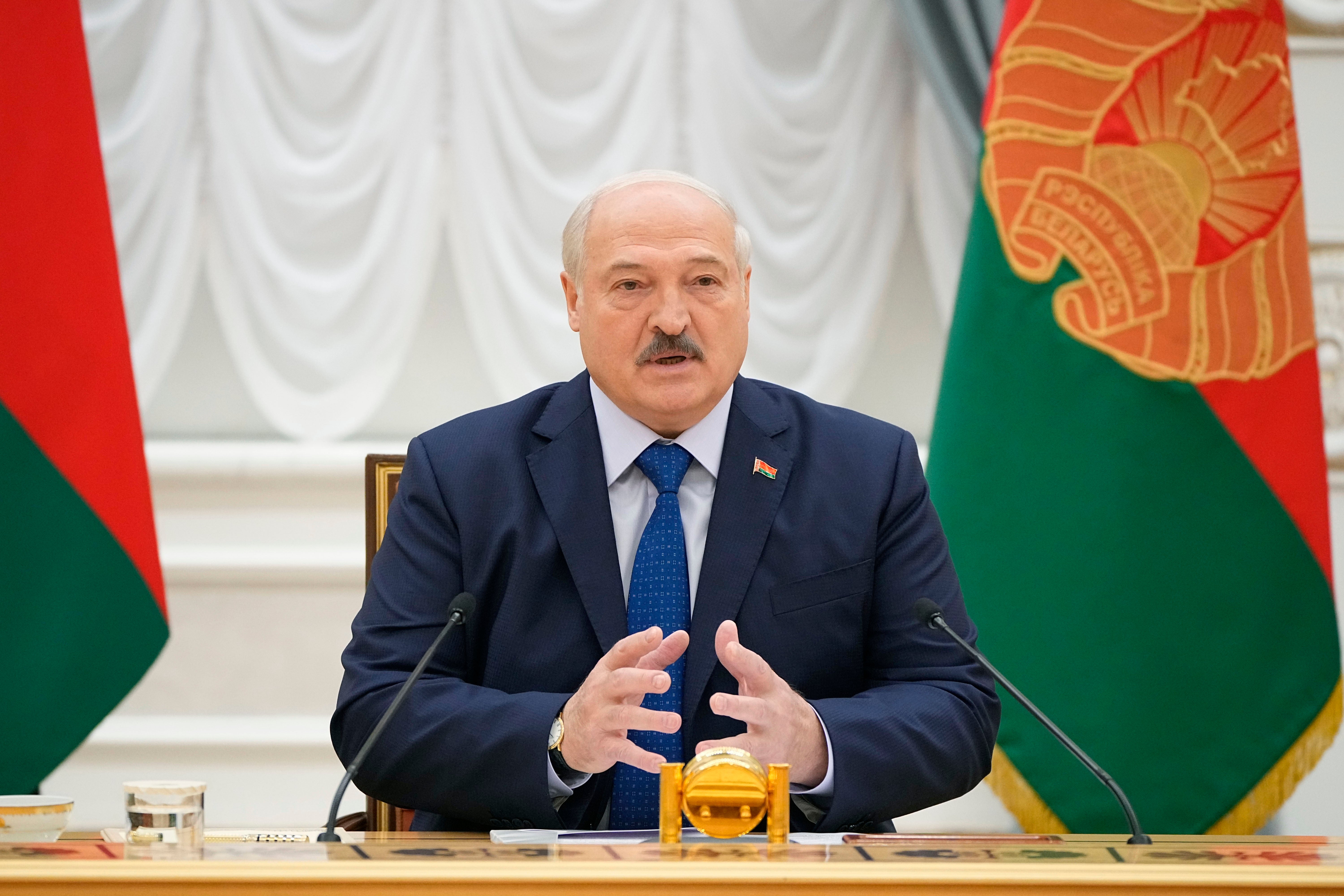Belarus sentences independent newspaper editor to 4 years in prison
Belarusian authorities have convicted the chief editor of a prominent independent regional newspaper of “discrediting the Republic of Belarus” and sentenced him to four years in prison

Your support helps us to tell the story
From reproductive rights to climate change to Big Tech, The Independent is on the ground when the story is developing. Whether it's investigating the financials of Elon Musk's pro-Trump PAC or producing our latest documentary, 'The A Word', which shines a light on the American women fighting for reproductive rights, we know how important it is to parse out the facts from the messaging.
At such a critical moment in US history, we need reporters on the ground. Your donation allows us to keep sending journalists to speak to both sides of the story.
The Independent is trusted by Americans across the entire political spectrum. And unlike many other quality news outlets, we choose not to lock Americans out of our reporting and analysis with paywalls. We believe quality journalism should be available to everyone, paid for by those who can afford it.
Your support makes all the difference.Belarusian authorities on Friday convicted the chief editor of a prominent independent regional newspaper of “discrediting the Republic of Belarus” and sentenced him to four years in prison, as the country continues its crackdown on dissent.
A court in Molodechno, a city in central Belarus, also ordered Aliaksandr Mantsevich, chief editor of the popular Regionalnaya Gazeta newspaper, to pay a fine of 94,000 Belarusian rubles (about $30,000), the Belarusian Association of Journalists reported.
The authorities accused Mantsevich and his newspaper of using content that had been declared extremist — a label loosely applied in recent years to any materials critical of the Belarusian government.
Belarus was rocked by mass protests after a disputed presidential election in which authoritarian President Alexander Lukashenko was declared the winner, giving him a sixth term in office. The protests lasted for months, the largest and most prolonged show of dissent since Lukashenko came to power in 1994 and began repressing independent news media and opposition.
Lukashenko unleashed harsh measures against the protesters, with police detaining some 35,000 people and beating thousands. The multi-pronged crackdown also targeted independent journalists, human rights groups and activists. Multiple independent news outlets have been blocked. Some have been outlawed as extremists.
The Regionalnaya Gazeta newspaper was being published in Molodechno since 1995 and has remained a popular independent source of news in the central and western parts of Belarus.
After the 2020 protests, its newsroom has been subject to several raids, during which the authorities confiscated some of its equipment. The print edition of the newspaper ceased to exist in July 2021, and in January 2022 its website was declared extremist and blocked.
Mantsevich, 65, was detained in March 2023 and has spent eight months in pre-trial detention, where his health significantly deteriorated, the Viasna human rights group reported. He has maintained his innocence and in a closing statement in court said that he was “proud of my newspaper.”
“I'm not a dreamer, but I'm sure that at some point in the city (of Molodechno) will appear a street named after our newspaper, which strengthened the authority of the Belarusian people, lived through the concerns of our readers and wrote the truth,” he said.
According to the Belarusian Association of Journalists, a total of 33 journalists are currently behind bars in Belarus.
Belarus' opposition leader in exile, Sviatlana Tsikhanouskaya, denounced Mantsevich's sentence as “absurd.”
“The editor of Regionalnaya Gazeta was punished just for fulfilling his journalistic duty,” she said. “I condemn this sham trial and demand his release.”